Are you ready to take charge of your heart health? Understanding cardiovascular fitness is essential for your overall well-being, and our assessment can guide you towards a healthier lifestyle. With tailored insights and recommendations, you can make informed decisions about your exercise routine and nutrition. Dive into our article to discover how a cardiovascular fitness assessment can empower you on your journey to a stronger heart!
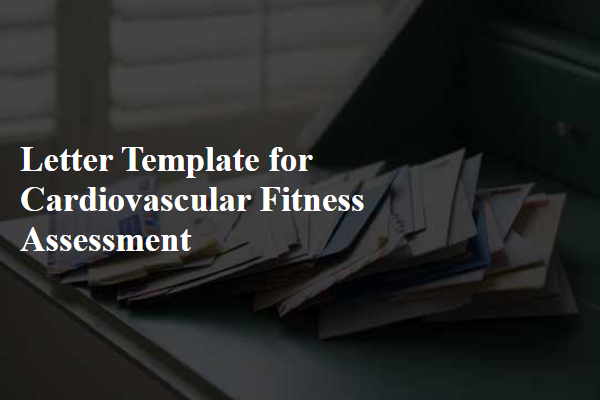
Subject line with specific purpose
Cardiovascular Fitness Assessment Results and Recommendations The cardiovascular fitness assessment, conducted on October 15, 2023, evaluated aerobic capacity through a VO2 max test. The test measured oxygen consumption during physical exertion, assessing endurance levels and overall heart efficiency. Results indicate a VO2 max of 45 mL/kg/min, falling within the average range for individuals aged 30-40 years. Key factors influencing cardiovascular fitness included resting heart rate (average 72 beats per minute), recovery time (15 minutes to return to baseline), and exercise duration (20-minute treadmill session). Recommendations for improvement include incorporating interval training, increasing weekly activity to at least 150 minutes, and monitoring heart rate during workouts to maximize benefits.
Personal details and contact information
Cardiovascular fitness assessment requires accurate personal details and reliable contact information for effective communication and record-keeping. Essential personal details include full name, which aids in identifying the individual, date of birth for age-related fitness benchmarks, and gender, which affects physiological assessment outcomes. Contact information includes current phone number, essential for appointment reminders or follow-up communication, and email address, which facilitates easier correspondence and sharing of assessment results. Additionally, emergency contact details are crucial in case of health issues arising during fitness evaluations. Clearly organized personal and contact information ensures a smooth and professional assessment process.
Assessment overview and protocol
A comprehensive cardiovascular fitness assessment evaluates an individual's heart and lung efficiency through structured measurements. The assessment protocol typically involves a series of tests, including the VO2 max (maximum oxygen consumption) test and submaximal exercise tests, such as the Bruce treadmill test or the Astrand cycle ergometer test. These tests aim to measure the heart rate, blood pressure, and oxygen usage during physical exertion, providing valuable insights into cardiovascular health. Additionally, participants may be monitored for any signs of distress, fatigue, or abnormal responses during the assessment, ensuring a safe environment for evaluation. Test locations may vary, including fitness centers, hospitals, or dedicated testing laboratories, each equipped with necessary monitoring equipment like electrocardiograms (ECGs) and metabolic analyzers. Results help inform training recommendations, improve overall fitness levels, and reduce health risks associated with cardiovascular diseases.
Date, location, and schedule details
The cardiovascular fitness assessment will take place on March 15, 2024, at the Wellness Center located at 123 Health Lane, Springfield. Participants should arrive by 9:00 AM to complete registration and sign necessary waivers. The assessment will commence promptly at 9:30 AM and will include a series of tests designed to evaluate aerobic capacity, heart rate response, and overall cardiovascular health. Participants should prepare by wearing appropriate athletic attire and bringing water for hydration throughout the scheduled activities.
Preparation instructions and attire recommendations
A cardiovascular fitness assessment is crucial for evaluating heart health and endurance, particularly for individuals engaging in physical training programs or medical evaluations. Participants should prepare by avoiding heavy meals (at least two hours before the test) and refraining from caffeine and tobacco consumption (24 hours prior) to ensure accurate results. Comfortable athletic attire is recommended, including moisture-wicking fabrics suitable for physical activity, breathable sneakers designed for exercise, and appropriate undergarments to support movement. Participants should bring a water bottle to stay hydrated and a towel for comfort during the assessment. Proper preparation and attire enhance the effectiveness of the assessment, ensuring accurate measurement of cardiovascular health indicators such as heart rate and recovery time.

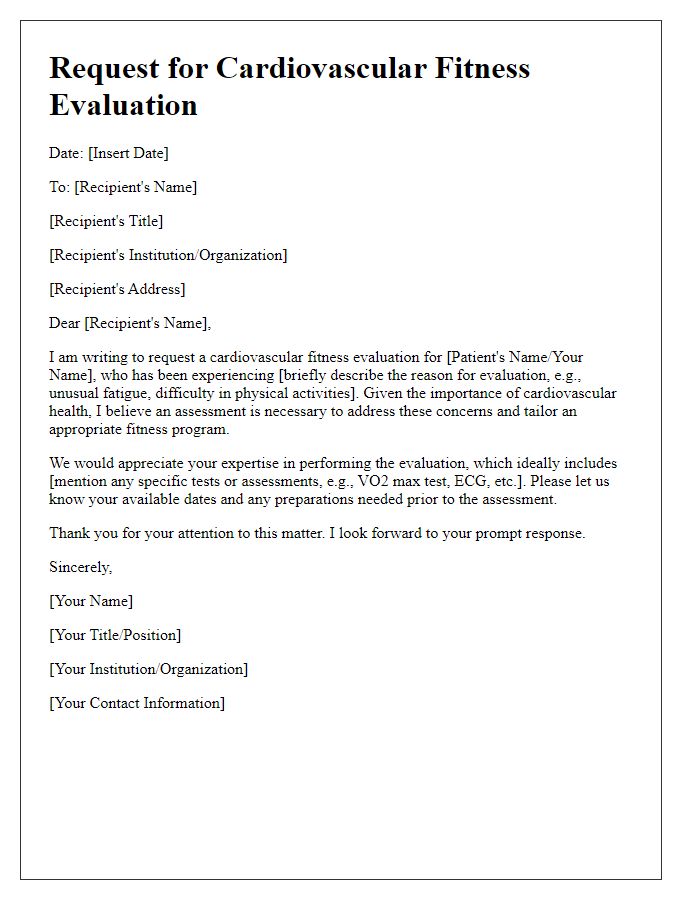
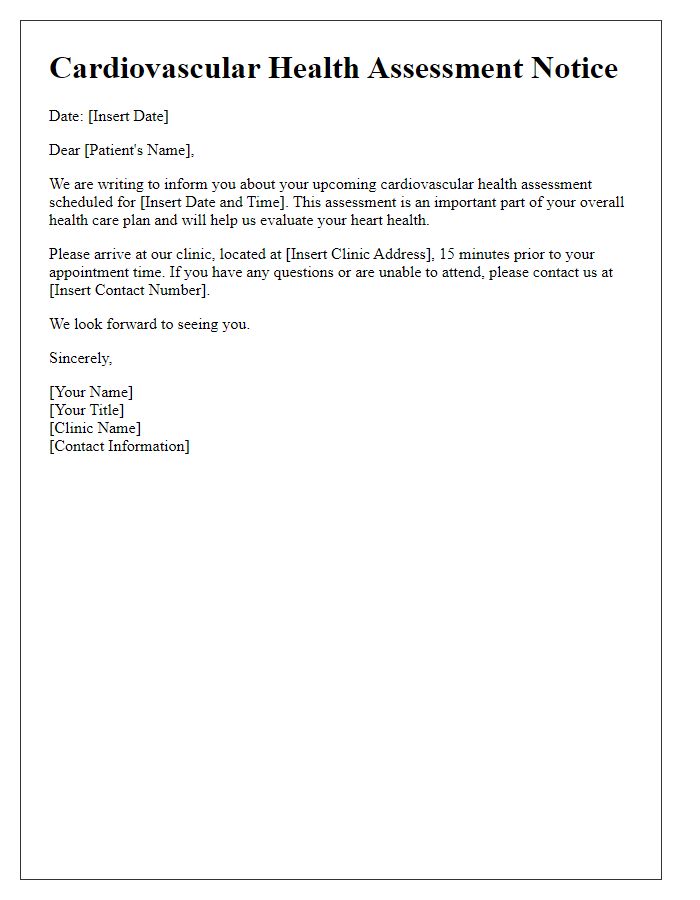
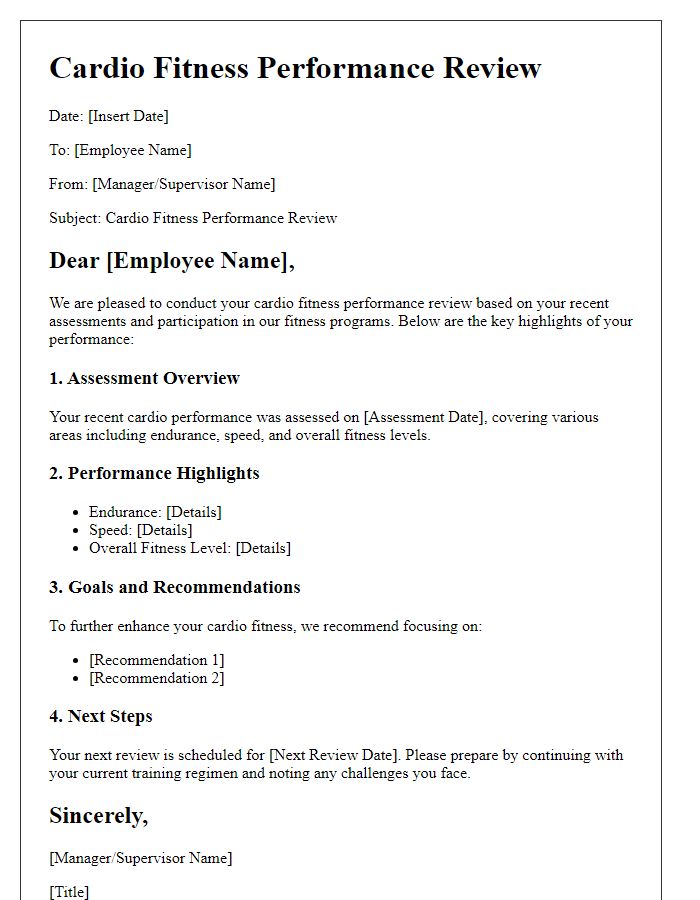
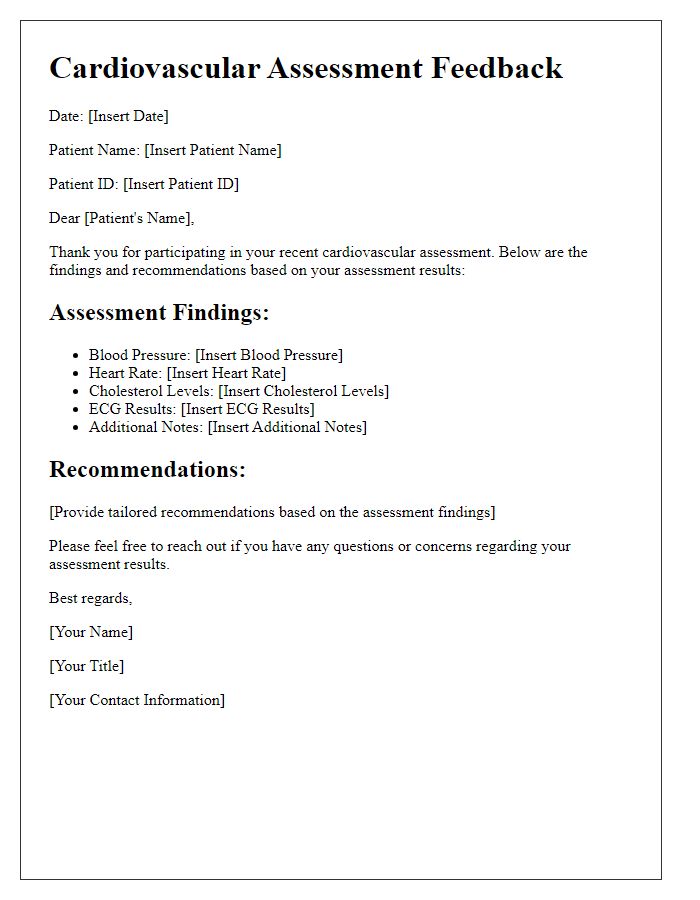
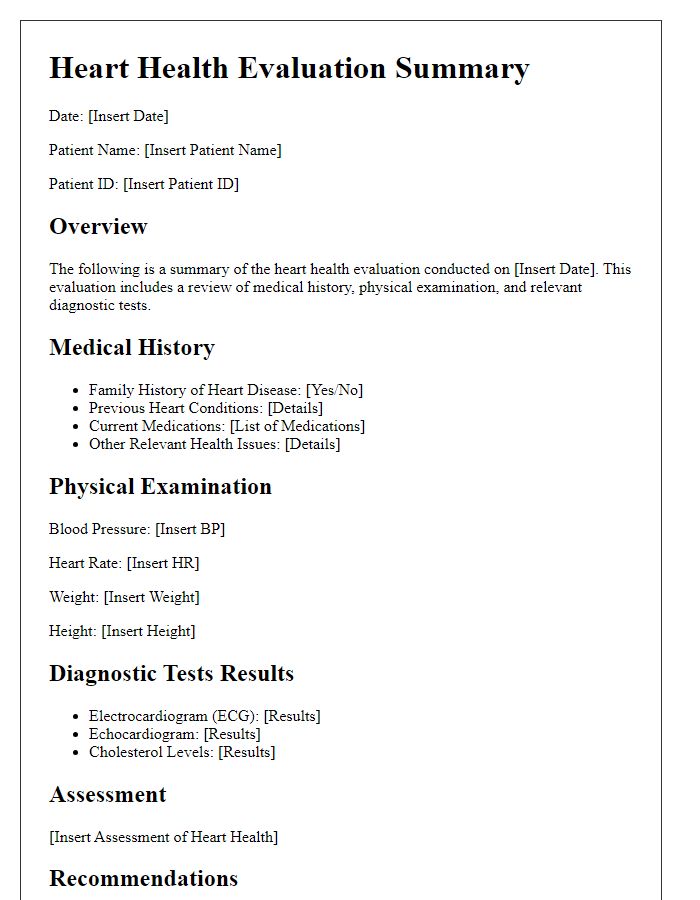
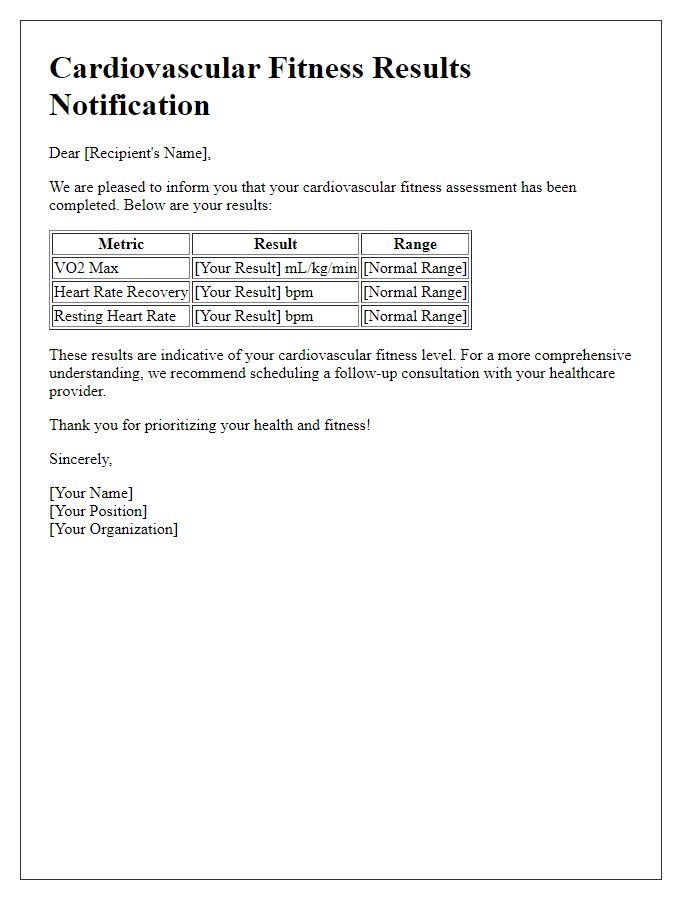
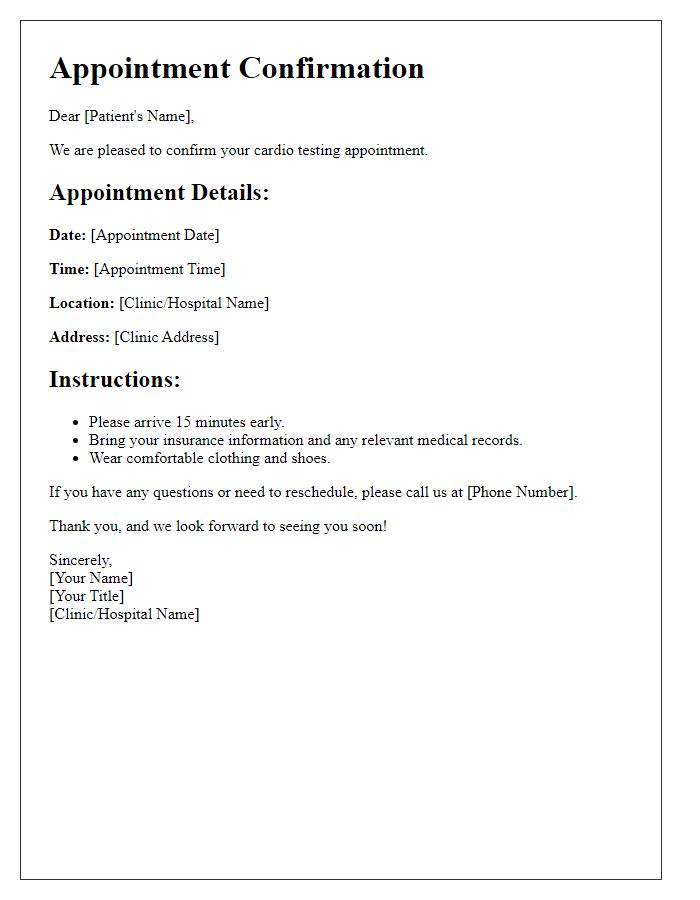
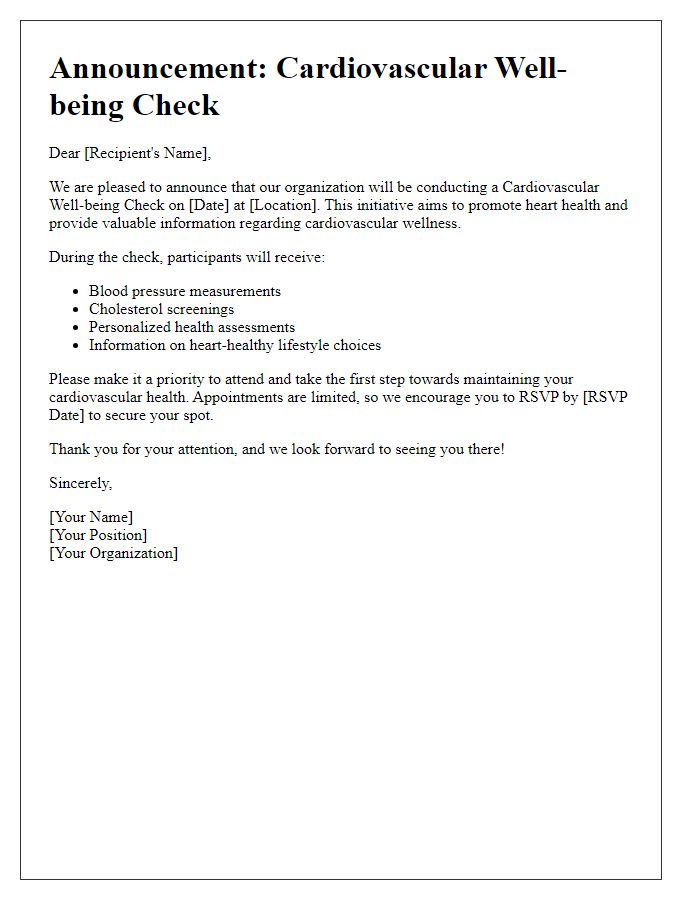
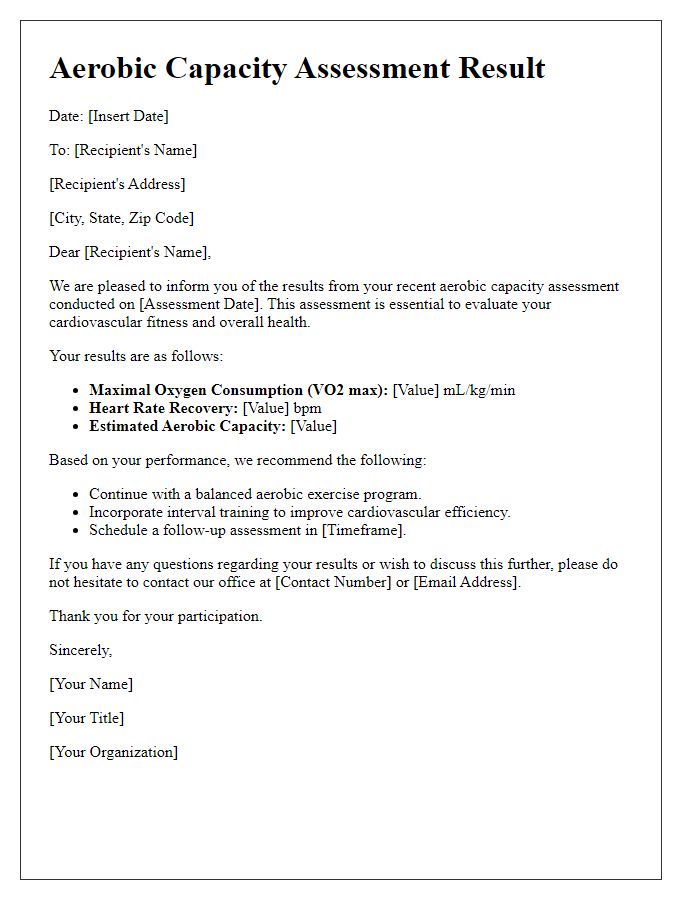
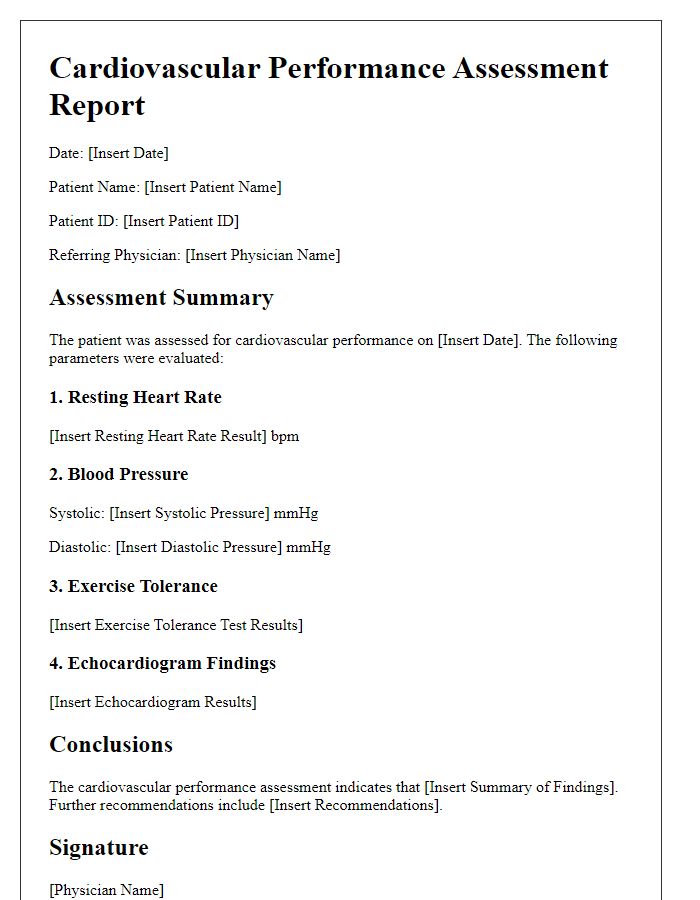


Comments